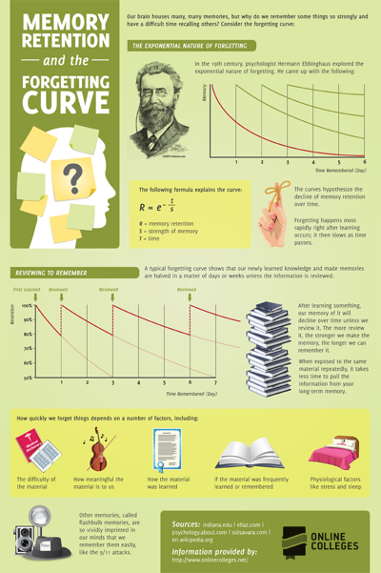
When the subject of outsourcing comes up in the realm of training and organizational development (OD), most of us immediately think of it in terms of hiring outside trainers to provide education in management, leadership, compliance, or specific subjects like cyber security or DEI training – areas where outside resources may have more subject matter expertise than in-house trainers.
But there’s another area where outsourcing can be a training and OD department’s strategic advantage when it comes to delivering value to employees and to the business itself: operational improvement. Before you cringe – perhaps thinking you’re about to be regaled with a tome on the value of hiring expensive outside consultants as advisors only who are heavy on advice and light on making things actually work – that’s not what I’m here to do.
In my experience, based on more than 20 years working both in corporate HR departments and as an outside consultant, what most companies need right now isn’t a consultant to tell them what to do. If anything, there’s too much information about what we all should be doing. And most of us are so busy managing change we don’t have the time or energy to do it effectively.
Instead, most companies can derive the most benefit from outsourcing right now in operations. That is, operationalizing the improvements we all want to make organization-wide but don’t have the bandwidth to get either started or see through to completion. In this case, what you’ll most benefit from is the help of a consultant who’s experienced in executing change.
As everyone knows, we are facing a time of unprecedented rapid change, and human resources operations have primarily become a change management function. I wrote about this in Training last year. Processes have changed. How we hire people has changed. Workforces have changed. And workplaces have changed – from in-office to work-from-home to hybrid models. All these changes – and much more – require new or adjusted processes and operations to support it.
Training and organizational development are critical at every phase of operational change. It’s no longer just about onboarding and teaching people what they need to know in order to do their job. It’s also onboarding remote workers and helping them integrate with their team at a distance. It’s helping managers learn to deal with process changes they’ve never faced before. It’s helping staff manage the changing landscape of their own work – perhaps taking on new or different roles to backfill for open positions. It’s fostering the corporate mission, vision, and culture in times of change and helping people cope emotionally and professionally with those changes – to name a few.
This all sounds very “internal,” doesn’t it? But who on your internal HR, training or OD teams has the expertise to educate and operationalize all of these change management functions (all the while meeting the expectations of their regular jobs)?
This is where outsourcing can be a huge strategic asset, bringing expertise, education, and feet-on-the-ground experience to help your team operationalize change.
Outsourcing change management makes sense.
We are all creatures of habit. I was reminded recently of just how hard it is for most of us to cope with even small changes – particularly those of us who have been in our roles for a while. My wife decided to clean and arrange our office, and she put the wastebasket on the opposite side of the desk because she thought it would work better there. Thinking, “ok, I’ll give it a try,” I left it there. I was tossing things onto the floor for a good week before I finally gave up and put the wastebasket where it’s always been.
In this case, my wife behaved like a consultant – she came in and advised where the wastebasket should be. She even moved it for me. But I was too busy to think about it, and I didn’t have any ongoing support in making that change happen. I just tossed and picked up the pieces later.
Organizations are, of course, a lot more complex than that. But our “how it’s always been” reflexes have a LOT more muscle memory than any new operational changes we would like to make. This is what makes it even harder for already over-worked internal HR, training, and OD teams to effectively drive operational change without a bit of outside help and support.
The kind of help you need is an HR or training operations expert who can come in and look objectively at the changes you want to implement. They can work with you to help you identify and prioritize the processes that will help you move forward most efficiently and effectively with the organizational shifts you need to put into place.
Sometimes, this can be done with a strategy session – where an outside expert can help you plan to optimize your efforts. But more often, it helps to have a short-term or medium-term resource available, with feet on the ground, for a period of time to help guide you or to lead your organizational shifts and support them until they are fully operationalized. This might look like:
Change management – operationalizing project management, process change, systems updates/changes, and communications to help your organization successfully adopt change. (My company has developed a “Rapid Change Management Playbook” we’ve made available as a free resource to help with these efforts.)
Leadership development – executive coaching, mentoring programs, upskilling your workforce
Organization design – operational assessment and analysis with an eye toward alignment with business objectives
Training – design and delivery of training that helps you develop people and operationalize improvements
Workforce planning – helping your in-house recruiters or providing additional recruiting services to help you better operationalize the more complex areas like mobility, career pathing, and succession.
Another advantage to outsourcing for training and OD: it’s not all on you
An outside resource who has expertise in operations and change management can not only take things off your plate, but they can help you see your blind spots and even help with your personal development. By working with leaders in real-time as they go through organizational change, outside experts can help make new information more sticky and lessen the impact of the “Forgetting Curve” (humans forget about 70% of what they learn within 24 hours) that too often leaves leaders fumbling around trying to remember and enact new processes and practices.

Credit: The Forgetting Curve, Online Colleges: http://elearninginfographics.com/memory-retention-and-the-forgetting-curve-infographic/
Your role as a leader is to guide the human elements and processes of the organization forward. The outsourced expert’s job is to support you in ways that help you succeed. Sometimes, it really is just a matter of taking critical administrative and operations tasks off your plate. But other times, the outside expert’s role can be serving as eyes and ears, observing things you may not see because you’ve been in the trenches too long. And often, an outside resource can bring in entirely new perspectives and ways of doing things that can streamline your processes or make your existing operations more effective.
Sometimes, you need to be the friendly face driving organizational change from a business and management perspective. But when you are inside the organization, you also have your own career to attend to. Company politics can rear its ugly head, and situations, where change is called for, can be delicate – if not difficult – to get senior business executives to hear or buy into. Sometimes, you need a “bad cop” to your “good cop.” Hiring an expert, outside resource can be your ace in the hole – providing an unbiased voice that raises important issues and observations and helps senior business management understand – and buy into – the business benefits of making significant organizational changes.
Consulting and then some…
There’s nothing wrong with advising only if that’s all you need (after all, my company advises as well). But in this era of shrinking budgets and short staffing, the kind of help that’s often most useful is actual execution that enables you to do your job better and more strategically without burning the proverbial candle at both ends.
Now is the time if you’ve never considered hiring outsourced operations and OD experts.




